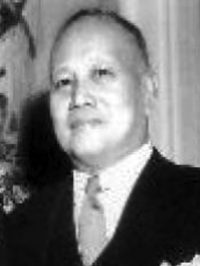General Yamashita, the Japanese Commander-in-Chief in the Philippines, surrendered with thousands of his men in Baguio in the presence of Lt. Gen. Wainright. He was immediately confined in New Bilibid in Manila and will be tried as a war criminal. Under him, thousands and thousands of Filipinos, including my own daughter and brother-in-law, were massacred. He should be made, to atone for it. He should commit harakiri.
While on the way to luncheon a discussion ensued as to the retaking of the Philippines by MacArthur. With the exception of Alunan, all those who expressed themselves were of the opinion that the loss of over a billion pesos and the death of probably 200,000 Filipinos might have been avoided if the Philippines had not been retaken; that it was absolutely unnecessary since with America’s control of air and sea, better equipment, and the atomic bomb, Japan could have been brought to her knees by direct attack on Japan. But MacArthur, according to them, was ambitious. He desired to erase the blot on his record caused by his defeat in Bataan and Corregidor, and his escape from Corregidor. He said that he would return. And he wished to make good his word. The trouble was that in his effort to recover the Philippines, millions worth of properties and thousands of Filipino lives were sacrificed. Recto remarked: “MacArthur has destroyed the Philippines.” (“MacArthur ha destruido Filipinas.”)
In the afternoon, the Provincial Treasurer, Arcilla, came with letters for us. He first asked us to sign the receipt for the letters. We were very excited; we thought that it was an order for our release. It was a resolution presented by Rep. Magalona petitioning MacArthur to release us under bail. We appreciated it as we know Magalona had the best of intentions. But we all agreed that it was a foolish resolution. How can MacArthur grant us bail? The petition should have been to immediately turn us over to the Commonwealth, especially since there was already a plan for the disposition of our cases.
